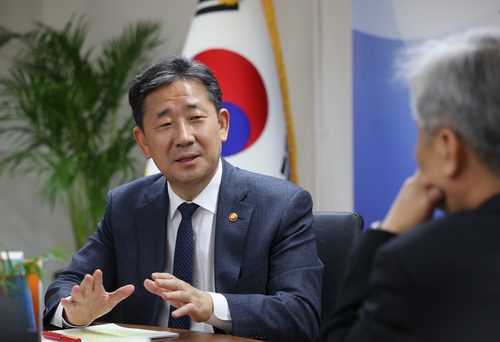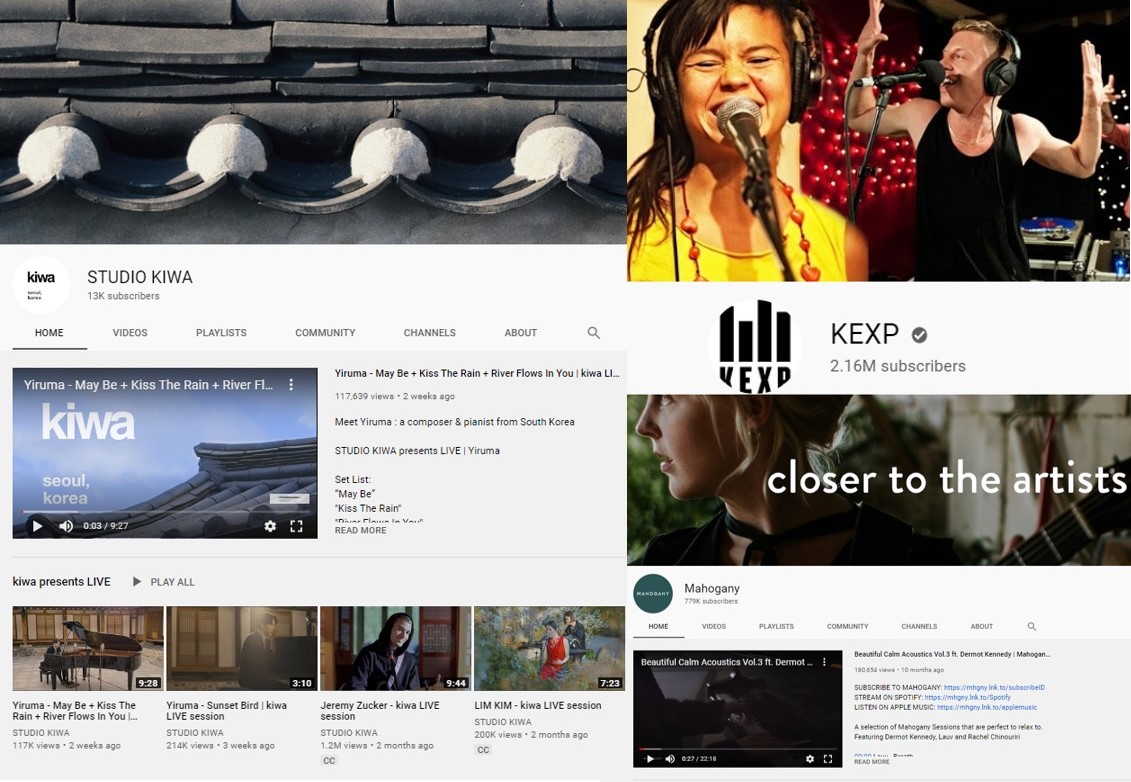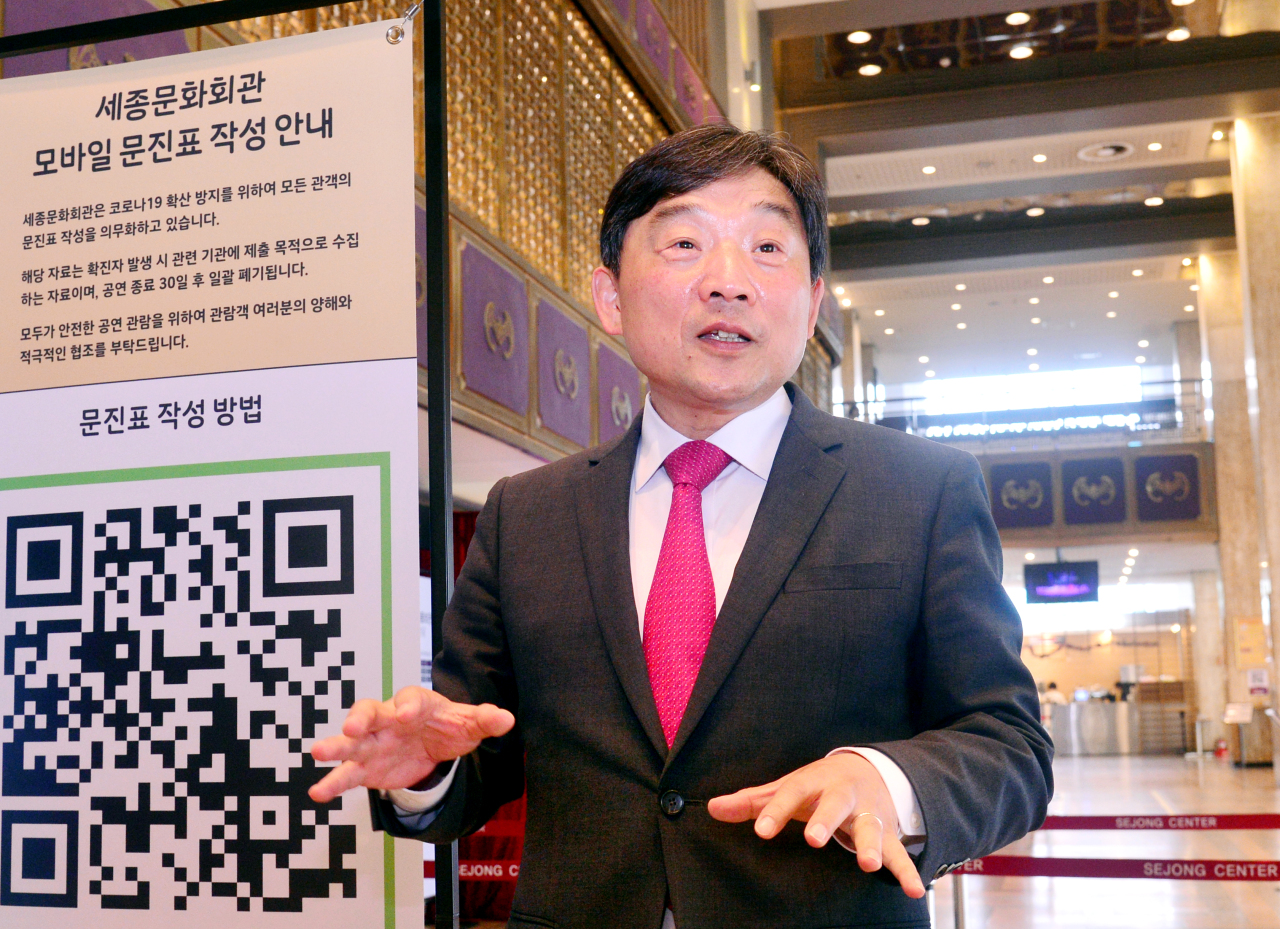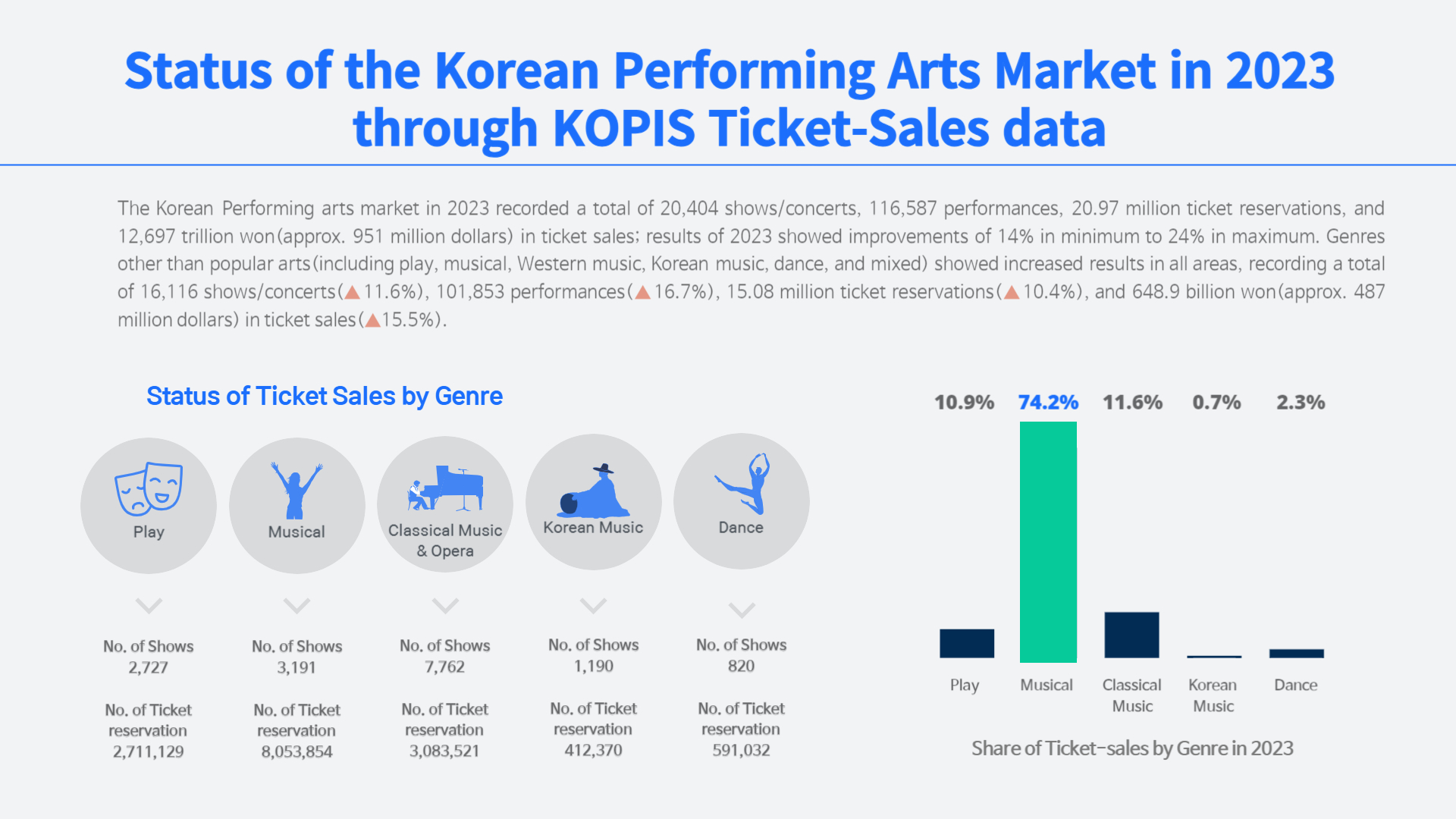Coronavirus and the Asian Music Network: Response, Role and Future
The coronavirus has brought a crisis to performance venues around the world. Each country’s theaters, festivals and music markets have closed and artists have lost their stage and audience. Instead of performing live on stage, artists have presented online performances to meet their audience again. During the pandemic, the most affected area is international exchange. The Performing Arts Market in Seoul, which is a representative brand of the Korean performing arts, took place completely online this year. Meanwhile, offline performances are resuming carefully by observing social distancing guidelines, in accordance with the changing quarantine situation. Audiences have waited for live performance for a long time so they reserve their seats as soon as ticketing begins. Since the number of seats available has decreased due to social distancing, performances are sold out immediately. Currently, what is the most challenging is the fact that we don’t know when theaters would close again. The pandemic has blocked air travel and everyone is wondering if the international exchange of performances could resume. A Zoom meeting gathered together the artistic directors and planners of theaters, foundations and institutions from Asian countries (Korea, India, China, Taiwan, Hong Kong, Thailand, Japan and Singapore) participating in the Journey to Korean Music, which introduces traditional Korean music to global music experts. This was an occasion for them to exchange ideas about their response to the pandemic, their current state, the possibility of international exchange after the pandemic and the Asian Music Network’s role and future.
Moderator
Hee-sun Kim (Professor of Kookmin University, South Korea)
Participants
Cecilia Soojeong Yi (Executive Manager, DMZ Peace train Music Festival / Zandari Festa, South Korea)
Ji-young HAN (Chief programmer, Jeonju Int’l SORI Festival, South Korea)
Seongwon CHO (Program manager, Jeonju Int’l SORI Festival, South Korea)
Amitava Bhattacharya (Founder/Director, Contact Base, India)
Debalina Banglanatak (Musical coordinator, Contact Base, India)
Hean (CCO, MAO Livehouse, China)
Martius F. Y. Lin (Artistic Director, Studio Acht, Taiwan)
Chien-fu Lai (Manager, Studio Acht, Taiwan)
Samuel Chai (Director General, Renaissance Foundation, Hong Kong)
Sarun Pinyarat (CEO, Fungjai.com, Thailand)
Tak Furuichi (Music Market Director, Japan Music Culture Export / Tokyo International, Japan)
Xianghui Tan (Producer, The Esplanade Co Ltd, Singapore)

2020 Asian Music Network Online Meeting ⓒKAMS
Coronavirus and Response in the Asian Performing Arts Scene
Before the Zoom meeting, we sent to the participants a questionnaire about the response and current state regarding the coronavius in each Asian country’s performing arts scene to ask for their answers. This enabled them to be informed of concrete cases during the meeting. Each country’s performing arts scene had slight differences in situations depending on the national response to the pandemic, the institution’s size and roles and the national performing arts infrastructure. Nevertheless, the countries showed similar tendencies. First of all, as the countries have closed performance venues, they have canceled or postponed all projects previously planned. They also started the online sharing of the existing performance videos from archives. As time went by, they also tried online live performances. In China, global platforms are unavailable so the country shares performance videos on other platforms such as youku, TME, xiami and music.163.com. The institutions are transmitting online live performances on their websites and YouTube. Thailand is also using Facebook and Zoom. Although these two sites don’t provide high-quality sounds and images, they facilitate real-time communication. So they were often used at the beginning of the pandemic. Zoom turned out to be more effective for workshops, lectures and education programs rather than for live performances. Early on, India also presented live performances on Facebook, greatly helping the country’s artists. Artists from rual areas hadn’t been used to digital platforms but thanks to training, they came to use them with other artists. Moreover, masters of traditional music used Zoom to share their musical knowledge with young artists. This implies that symbiotic coexistence, support and cooperation are the only ways to maintain the ecosystem of the arts. Nevertheless, audiences still prefer live performances so artists are suffering from financial difficulties. So the country is preparing live performances and festivals while closely observing the changing quarantine situtation. In Hong Kong, free online live performances gained great popularity even though they started as small shows. A live show called the Music Station uploaded 37 videos of 30 minutes produced by artists. It was an occasion to secure creative videos from them. Meanwhile, as famous musicians canceled their tours, they produced “master class” videos in which they teach things like how to play musical instruments. Supported by a public fund, artists posted these videos on YouTube and received positive feedback. It is currently difficult to present offline performances. Under these circumstances, artists are making efforts to meet their audience online with different creative ideas. That is mainly because they are willing to maintain the ecosystem of the arts. This reason is clearly seen by their activities.
Most of the online performances are provided for free. Even in the case of a few paid performances, artists are not paid sufficiently. In Thailand, “At Home Festival” took place on Facebook. The event had a donation feature which also contributed to the participating artists’ profits. Japan has a great number of loyal theatergoers so it is the only Asian country to present paid online performances. Some of the country’s live performances have resumed but the country is still offering both paid online performances and live ones. Japan is undergoing quarantine challenges but the country’s performing arts ecosystem is relatively stable. Despite the country’s diverse efforts to present online performances and the audience’s interest at the beginning, people in all local areas gradually lose interest as time goes by. Now, they are waiting for live performances to resume.
China, Hong Kong, Taiwan and Thailand have successfully prevented the spread of the coronavirus, thus setting global examples. They have resumed performances and festivals while respecting social distancing guidelines and they are going back to the situation before the pandemic. In the meantime, the governments of Singapore, Japan and Korea have provided artists and theaters with financial support and Hong Kong’s Renaissance Foundation is about to launch a new online project fund. Despite its cancellation, Korea’s Zandari Festa has made use of the local goverment’s fund to offer post-production content, a magazine, a fake festival review, a short music documentary film and marchandise, trying to keep the festival’s spirit intact.

Live streaming of Zandari Festa Presented ⓒZandari Festa
In all the Asian countries, the hardest hit area is international exchange, as expected. All local areas have completely stopped international exchange. However, Taiwan has seen its local music scene enriched by artists coming back from abroad. In addition, as international artists have disappeared from the stage, local audiences are rediscovering local artists. In China, which is characterized by the exponential growth of its performing arts market, the market has grown even more rapidly since August when the country began to get back to normal. On the other hand, Zandari Festa is carrying out an online collaboration, virtual party and showcase on an online concert platform in an attempt to diversify its international exchange. As for the Jeonju International SORI Festival, international artists’ performances have been completely canceled this year and the entire festival was held online. The festival’s opening performance “Link” was a real-time online collaboration performance by artists from nine cities in different countries (Russia, Germany, Taiwan, Spain, Belgium, the Netherlands, India, Canada and Korea). It would be remembered as a successful case of international exchange amid the global pandemic.
Expansion of Performances to Online Spaces due to the Coronavirus and Resources for the Future
The coronavirus pandemic has made us reflect on our development-oriented attitude of the past. It has also been an occasion to do away with artistic creation and enjoyment we had taken for granted. On the other hand, the pandemic has rapidly led us to enter online spaces which had made everyone feel somewhat reluctant to actively embrace them. It has also brought us to a new world of imagination. At the same time, the health crisis has allowed us to reflect again on why society needs art. The coronavirus gave the performing arts scene a year of suffering but it also enabled it to think about its future expansion and resources. The staff at Singapore’s Esplanade has gained a better understanding of technology while preparing online performances. This performing arts centre’s stage staff members used to manage only stage performances but now, they are all-around technicians because they can also manage broadcasting.
Furthermore, the pandemic period without any international exchange and tour is also a great opportunity to draw up plans for the future, focusing on creation and production. In other words, artists now have time to come up with long-term goals and planning. In terms of international exchange, it could be a chance to ensure long-term planning and in-depth communication. Zandari Festa’s preparatory work and attempts, which involve a showcase of a new concept, can go on because artists are drawing on their power of artistic imagination during the severe crisis of the coronavirus. Japan can afford to attract audiences paying for online performances so the country says that online services constitute a plus, enabling it to widen the scope of its performing arts toward online live shows. For new artists, online live performances helped them kill two birds with one stone by offering them both profits and audiences.
In Taiwan, the local music market has been enriched because Taiwanese artists who had lived abroad have come back. They are actively planning long-term projects with local artists while starting exchanges with the Taiwanese music scene through workshops, lectures and education programs. Artists canceled overseas performances but they now have time to think about how to transform their creative energy and ideas into global ones. So they say that they have time to think about their future while ensuring their musical basics. As a variety of education programs take place and festivals go online, artists also seek future opportunities.
Going online has numerous strengths in terms of promotion. It is impossible to travel but promotional activities can be carried out online. In addition, countries can also promote their own artists through cooperation. It is also possible to produce high-quality videos to engage in exchange with other regions’ showcases and festivals. Online exchange also leads to saving time and costs needed for travel. So artists gain more time to exchange ideas and they could also make their creativity visible. They will have more opportunities to cooperate rapidly and efficiently. People began to get used to watching performances online. Artists are also getting used to interacting with audiences and other regions’ artists in online spaces. With online performances of higher quality and appropriate platforms, the realm of online live performances will expand and artists will have opportunities to enrich their global career again.

Networking at Zandari Festa ⓒZandari Festa
Asian Music Network as a Platform of Sustainable Solidarity and Cooperation
The last item on the agenda concerned the Asian Music Network’s role and its future. The participants all agreed that sustainable solidarity and the Asian Music Network are all the more important during the current pandemic period. They also stressed the need to share each country’s situation and experiences by continuing to meet each other in the framework of the Asian Music Network, instead of discussing just once. They suggested a Asian network festival platform which could gather together Asian artists on a digital platform to introduce them and to engage in exchanges. They said that the existing festivals and theaters could take the lead in forming such a platform. They also said that a creative platform could be planned to ensure cooperation in the Asian performing arts scene. What is the most important is to transform the Asian Music Network meeting into a platform for cooperation through sustainable solidarity and collaboration. Amid the global pandemic, we look forward to a platform on which Asians introduce Asians, of which we have dreamed for a long time.
The coronavirus has made us reflect on the world’s civilization focused on the West. Korea had declared the beginning of the Asian era and focused on establishing an Asian network. However, since the onset of the pandemic, the Korean performing arts scene has paid attention to the situation in the Western performing arts scene. Every day, the country explained how Broadway, the West End, the Met and the Berlin Philharmonic were responding to the coronavirus. In other words, Koreans’ eyes were still on the West. This is where the Asian Music Network could demonstrate its power. Japanese audiences are showing their purchasing power for online performances as well. China, Hong Kong, Taiwan, Thailand and Singapore have been successful in their quarantine efforts and their performing arts scene is gradually getting back to what it used to be. Korea’s quarantine measures, its performing arts scene’s transition to online spaces and the quality of the country’s online performances are characterized by the greatest speed in the world. Considering the challenges faced by the Western performing arts scene, the Asian one’s response has a much higher level. In the quarantine process, Western civilization has unveiled its limitations and differences in moral awareness between individuals and society. This makes us expect world civilization to turn to Asia. This meeting was an occasion to reconfirm the fact that the Asian Music Network should play an important role in the international exchange of the Asian performing arts in the future. It was also a chance to concretely think about the world turning to Asia. Once again, we ask about Asia. Once again, we look at Asia. What role could the Asian performing arts play to reflect on the past and to serve as life’s arts providing future human society with communication, healing power, respect for lives and humans and cultural diversity?
About the Author

Hee-sun Kim, Ph. D. in ethnomusicology
Hee-sun Kim is an on-site activity-based researcher interested in the international exchange of Korean music. She is conducting research on critically considering world music, modern and contemporary Korean music, Asia’s contemporary musical exchange and the relation between Western and non-Western regions. Over the past four years, she worked as the head of the traditional Korean music research team at National Gugak Center. During this period, she experienced arts administration and carried out on-site academic communication. Currently, she is a professor at the College of Culture at Kookmin University.
hekst10@hotmail.com








 PREV
PREV






.jpg)
.jpg)
.jpg)
.jpg)











